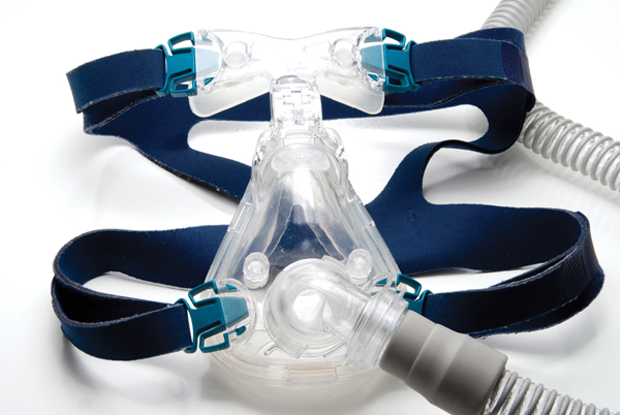
The continuous positive airway pressure machine (CPAP) was invented by Professor Colin Sullivan and his co-workers at Sydney University in 1981, for snoring and sleep apnea. It was, and still is, considered the gold standard of treatment for sleep disorders. The CPAP machine and the many varieties of the machine, including BIPAP, nasal pillows, AUTOPAP, and others are very successful, but only if the machine is used and worn consistently. In a series of articles, I am going to discuss sleep apnea and an alternative to wearing the CPAP machine.
An oral mouthpiece (appliance) offers a viable option to the CPAP, with several advantages. I want to emphasize that the CPAP works best, but if the patient is not going to wear it, there are many health issues that can arise from suffering with sleep apnea.
A definition of sleep apnea is necessary in order to understand why wearing a CPAP machine or an oral mouthpiece should be utilized to prevent many devastating health issues. Sleep apnea is a chronic medical condition where the affected person repeatedly stops breathing during sleep, often “gasping for a breath.” These episodes last 10 seconds or more and cause oxygen levels in the blood to drop. It can be caused by obstruction of the upper airway, resulting in obstructive sleep apnea, or by a failure of the brain to initiate a breath, called central sleep apnea.
With the airway compromised, several symptoms can develop, including:
- Waking up with a very sore and/or dry throat
- Loud snoring
- Occasionally waking up with a choking or gasping sensation
- Sleepiness or lack of energy during the day
- Sleepiness while driving
- Morning headaches
- Restless sleep
- Forgetfulness, mood changes, and a decreased interest in sex
- Recurrent awakenings or insomnia
- High blood pressure
- Heart failure and increased complications of diabetes
- Relationship issues, sleeping in separate rooms, divorce
- Even death!
If you have some or all of these symptoms, then you should contact your doctor. A sleep study will be ordered for you to take—often in-office, or hospital, or a take-home version. There is a brief test you can take at my website that might provide you some clues. The study will be interpreted by a sleep specialist and a diagnosis will be rendered—snoring/mild-moderate-severe sleep apnea, etc.
A CPAP machine provides a flow of air through the mouth, nose, or both, opening up the airway and allowing the oxygen to be regulated. Again, the biggest problem with the CPAP is compliance. A quote from Factexpert.com sums up a common timeline for CPAP users:
“Although most people will acknowledge the benefits of CPAP machines and the health improvements made while using the therapy, many find that the disadvantages of the machine are too great to overcome. A large number of people who begin CPAP treatment quit within a week, and many more discontinue using the machine within three weeks. Because the CPAP machine requires such a change in sleep position and habits, it is difficult for many people to get used to and they often do not take the time to learn to tolerate it.”
There are several disadvantages of wearing the machine that must be considered:
- Mask leaks or slips, and/or straps are too tight and uncomfortable
- Cleaning the machine and tubes
- Noisy
- Uncomfortable setup
- Traveling hassles, especially air travel
- Claustrophobia
- Dry mouth, nose and throat
- Sleep position: often confined to sleeping on back
- Regulating/recalibrating airflow
If a person is dead set on not using the CPAP machine, then something should be done to avoid the many health hazards associated with “sleep deprivation!” I will discuss the philosophy, functions, and advantages of an oral appliance in the next article.
Jeffrey Bassman, DDS, PC, has been practicing dentistry in the Quad Cities since 1977, and TMJ and dental sleep medicine since 1985. He limits his practice to only these two specialties. For more information or a free consultation, please contact Dr. Bassman at 563-391-1525, by email: jbassmantmj@earthlink.net, or online: www.jbassmantmj.com.
Photo credit: Hemera/Thinkstock

